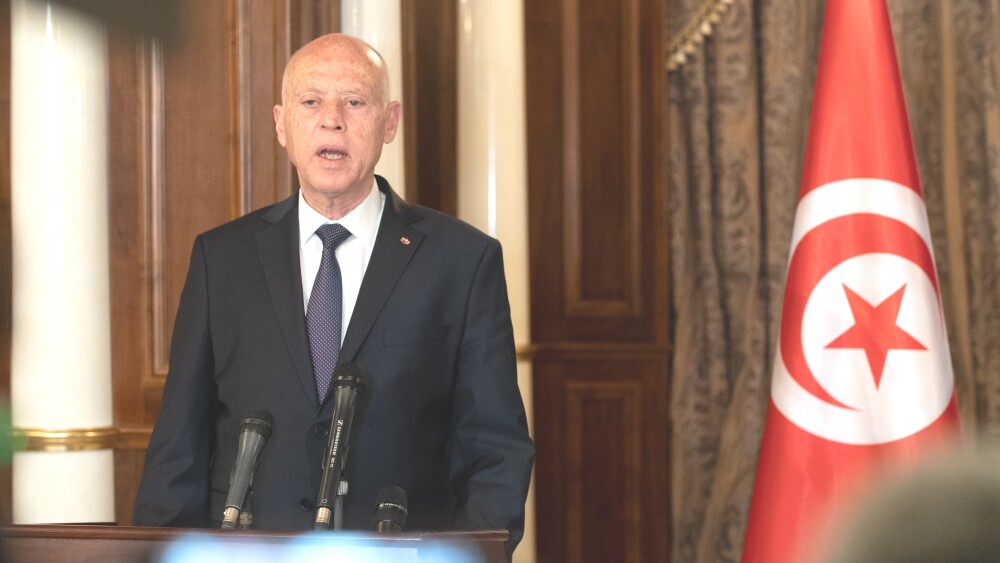When President Kaïs Saïed received Iran’s foreign minister, Seyed Abbas Araghchi, at the Carthage Palace on 10 September 2025, the handshake was more than diplomatic theater. It marked the consolidation of a pattern that has quietly reshaped Tunisian foreign policy over the past year: a willingness by Tunisia’s head of state to look eastward for political validation and economic breathing room at a moment when ties to Europe and Western institutions have frayed.
Saïed’s trip to Tehran in May 2024 for the funeral of the late Iranian president was an unmistakable signal that the president would not hesitate to normalize relations with Tehran even when doing so raised eyebrows in Brussels and Washington.
The visit made plain that what once would have been an oddity in North African diplomacy has become a deliberate choice with real strategic consequences.
That choice did not emerge from a vacuum. Mr. Saïed’s trip to Tehran in May 2024 for the funeral of the late Iranian president was an unmistakable signal that the president would not hesitate to normalize relations with Tehran even when doing so raised eyebrows in Brussels and Washington. For a leader who has steadily centralized power at home and who frames his rule in terms of national sovereignty against an alleged corrupt elite, such gestures serve both domestic and international purposes: domestically they brand him as an independent actor; internationally they open alternative lines of support that do not hinge on the political conditionality demanded by Western creditors.
The economic pressures behind this diplomatic pivot are urgent and measurable. Tunisia has faced persistent budget shortfalls, constrained access to external financing, and a political calculus that has pushed the government to consider unorthodox borrowing and fiscal measures. Attempts to secure large, conditional bailouts have stalled, and policymakers in Tunis have at times signaled a preference for partners who offer liquidity without governance preconditions. Those gaps — rising debt, limited IMF engagement and a shallow social safety net — create incentives for a government tempted by quick financial fixes and symbolic alliances that promise relief without strings.
For the United States, the Tunis-Tehran entente should not be treated as merely a local curiosity:
Tunisia sits at the crossroads of the Mediterranean, a transit route for commerce and migration and a node in regional counterterrorism cooperation. If Tunis’s outreach to Tehran deepens into practical security or economic entanglement, it could erode lines of cooperation that Washington relies on: intelligence sharing, port security, and the political will of moderate Arab states to resist malign influence.
The risk is not that Tunisia becomes a proxy battlefield overnight; the more immediate danger is that a drift toward Tehran normalizes an alternative regional order in which U.S. leverage is diminished and malign networks find new permissive environments.
If Washington lets the relationship between Tunis and Tehran calcify into durable economic and security arrangements, the geopolitical costs will rise and the options for reversing the trend will narrow.
Time is not neutral in this contest of influence. If Washington lets the relationship between Tunis and Tehran calcify into durable economic and security arrangements, the geopolitical costs will rise and the options for reversing the trend will narrow. Conversely, a prompt, well-coordinated strategy that pairs conditional financial lifelines with tangible development projects and continued, carefully managed security cooperation can make the Tunisian government’s turn to Tehran unnecessary rather than irreversible. For U.S. policymakers who care about a stable Mediterranean and a Maghreb aligned with democratic and economic openness, the choice is strategic rather than moralistic: invest credibly, engage smartly, and deny rivals the vacuum they seek to exploit.
Tunisia’s flirtation with Tehran is ultimately a test of American strategy in the region. It asks whether the United States will respond to influence with isolation or with an offer that restores dignity, sovereignty and economic hope to a country at risk of becoming collateral damage in a broader contest. The smarter course, and the one that protects American interests, is to act with calibrated firmness: to shore up Tunisia’s economy and institutions now so that a symbolic realignment does not become a strategic one.
Published originally on September 26, 2025.







